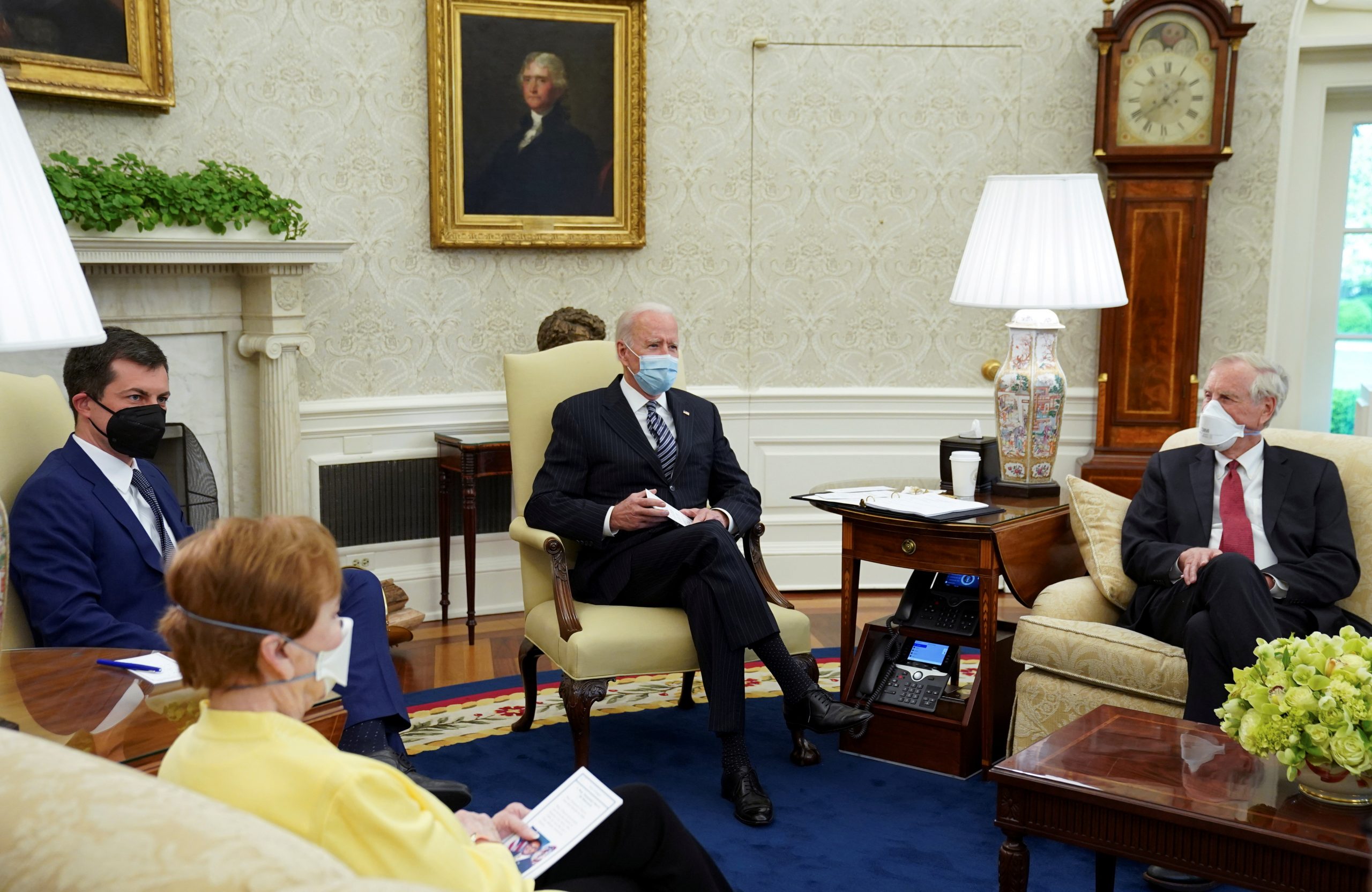U.S. President Joe Biden met on Monday with a bipartisan group of lawmakers who have all previously served as governors or mayors, as the White House seeks a deal on his more than $2 trillion jobs and infrastructure proposal.
“I am prepared to compromise and prepared to see what we can do and what we can come together on,” Biden said at the outset of the meeting. “I’ve noticed everybody’s for infrastructure. The question is who’s going to pay for it.”
The group is made up of five Democrats, four Republicans and one independent. Senators include John Hickenlooper (D-Colo.), John Hoeven (R-N.D.), Angus King (I-Maine), Mitt Romney (R-Utah), and Jeanne Shaheen (D-N.H.). House Representatives Emanuel Cleaver (D-Mo.), Charlie Crist (D-Fla.), Carlos Giménez (R-Fla.), Kay Granger (R-Texas) and Norma Torres (D-Calif.) will also attend.
Biden said he selected a group of former local leaders because they know getting things done. Transportation Secretary Pete Buttigieg, also a former mayor, also attended the meeting.
Giménez voted against certifying the 2020 presidential election results after the Jan. 6 storming of the U.S. Capitol by supporters of then-President Donald Trump.
Monday’s meeting marks the second time Biden will host a bipartisan group of lawmakers to try to craft an infrastructure bill both parties will support. The White House’s welcoming on Monday of a lawmaker who tried to block Biden’s presidency outright highlights the hurdles to doing so.
While fixing the country’s crumbling roads and bridges, and asking companies to pay the bill is popular with U.S. voters, Republicans in Congress say the bill Biden has proposed is too big and mostly oppose raising corporate taxes.
Last week, Biden met with eight members of Congress in the Oval Office for nearly two hours to discuss the bill. Afterwards, Republicans indicated little signs of support.
Biden is pushing a more than $2 trillion jobs-and-infrastructure proposal, branded the American Jobs Plan, that calls for spending on traditional infrastructure projects like roads and bridges alongside other priorities such as addressing climate change and expanding access to home and community-based care.
The money allocated would be spent over eight years and be paid for by increasing the corporate tax rate from 21% to 28%, and by limiting the ability of American companies to avoid taxes by shifting profits overseas.
(Reporting By Jarrett Renshaw; Editing by Heather Timmons, Bernadette Baum and Bill Berkrot)

























 Continue with Google
Continue with Google